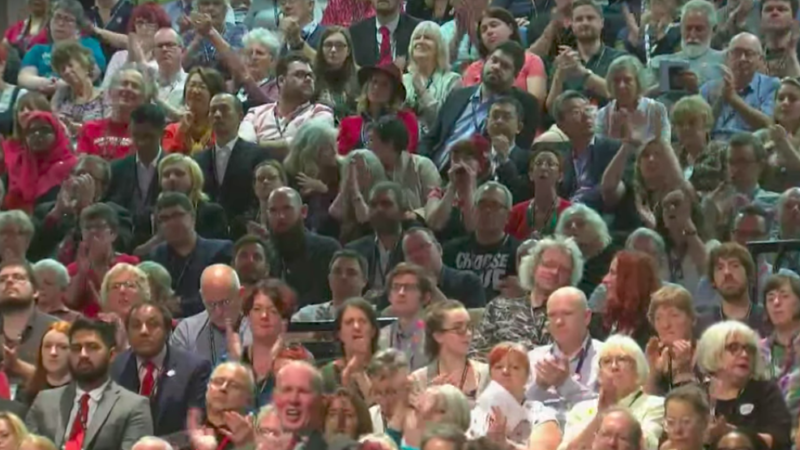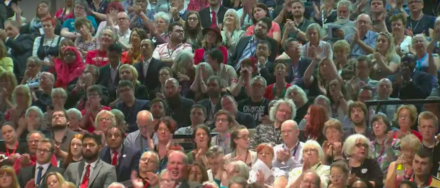

“The political centre of gravity isn’t moved or fixable,” Jeremy Corbyn told Labour conference last month in Brighton, “nor is it where the establishment pundits like to think it is”.
This message is as necessary for pundits as it is for sceptic within Labour’s internal structures. To shift the political ground further, Labour need to take on established ideas and modes of politics within party and that in large part means giving power to the grassroots.
The drive to rebalance power in Labour was reflected in Corbyn’s party conference speech when he committed the party to bottom-up politics. Alongside rejecting neo-liberalism and committing to social housing, he repeatedly talked about listening and giving power to party members and people in this country. “But let me say it again. We will do politics differently,” Corbyn told the nation, “And the vital word there is “we”. Not just leaders saying things are different, but everyone having the chance to shape our democracy.” But the party needs to change for Corbyn’s idea of a collectivist Labour to be realised.
There has long been a strain of thinking – which manifested itself clearly in the Blair years – that politicians and the people around them were best placed to make important decisions. This managerial, top-down politics had little interest in substantive discussion and debate with members over policy. Instead, the people who kept Labour going were largely expected to fall in line and deliver the party’s pre-decided message on the doorstep. This thinking endures; it’s embedded within Labour’s structures.
But people want to engage and have a say over the politics that shapes in their everyday lives. Of all the World Transformed events I spoke at last month, one subject kept coming up: how Labour could meaningfully connect with existing forms of grassroots politics and make sure that internal party power came from the grassroots. This will, a lot of people realised, be ever more crucial now that the party under Corbyn is finally seen as a plausible contender for government. Labour operate in a hostile political climate and the pressures on the leadership can be a limitation to pursuing radical politics – this will only increase if they become the party of government. The Labour leadership and party supporters know meaningful, productive pressure from the grassroots is necessary to push them to be truly radical.
Yet when discussions about party democracy arise – which call for more power to be given to members – there’s uproar from some quarters that this signifies an attack on the parliamentary Labour Party. The left, in this narrative, are depicted as inherently hostile and aggressive. This simply isn’t true.
For years pundits have declared people are disenfranchised and picked over a British political system that just simply doesn’t connect with those whose lives in effects. Countless commentators have ruminated what to do about political disconnect but few seem to have grasped that the form of politics Corbyn represents is addressing just this.
Democratisation is no panacea: there’s still much work to be done to push the intellectual project even further, if Labour is to come up with a transformative policy agenda. And within the left there are different views on key subjects, like immigration, where serious groundwork needs to be done to ensure the party moves in the direction of palpable, positive transformation of the debate. But for Labour, the move to democratise could be a significant step in the right direction.




More from LabourList
Nudification apps facilitate digital sexual assault – and they should be banned
Diane Abbott suspended from Labour after defending racism comments
Labour campaign groups join forces to call for reinstatement of MPs